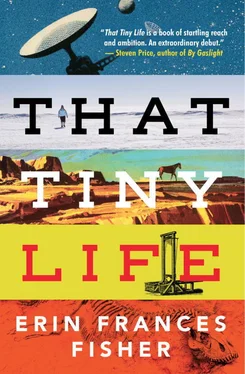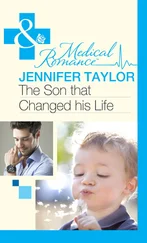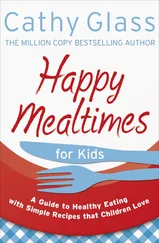Water fills the porridge bowl and spills over the oats still crusted around the sides from this morning. She shuts off the tap and touches her cheekbone where Axel slapped her. This whole day. No, the entire year — she feels like grinding rocks into her gramp’s porridge. Or at least salt.
Hitting — she thought hitting was the limit. Milo never hit her. Even last night, what happened was more an accident than an incident: Milo — drunk, that goes without saying — pulled her out of bed to trim his hair, and when she wouldn’t, he cut a tuft off her head. He didn’t even yell when Axel struck her. She should yell now. Something horrible. She mouths the word “cunt” — soundlessly so Milo can’t hear — exploring the brush of her tongue first at the back of her throat and then the tip of it against her palate.
When she turns, her father has lit the home-still. The blue flame, like that of the gas stove idling on low, flickers in the sugar dish. Different from the light of the candler through her hand this afternoon. That’s the light that should be in her house, should welcome her when she comes home from school or from a friend’s or from the barn — that ruddy orange glow, that warmth.
The moan starts up again, this time punctuated with cough. She bites her lip, then lifts a bucket from under the sink and fills it with warm water and dish soap.
CODY
The couch is upholstered in stiff, woven synthetic so old it’s broken or melted in place, and itchy even through the sheets Kendra gave him. He rolls onto his side. It’s impossible to sleep. Every time he does drift off, his breath catches on the confusing scent of dirt or manure that who knows how long ago seeped into everything, and he gasps awake. Also, across from his bed on the couch, in front of the living room window — worse because he can’t see it — the table: jars of dye, leather, wire, the sawed-off handle of a broom, a four-foot strip of snakeskin, knives, and curved hide needles. No point in watching because there is no light, but when he stares at the general area of the table hard enough, the dark comes together, like he’s summoned something in the quiet, the quiet that’s so quiet and black he might as well be buried alive.
Little pieces of the couch’s weave break off under his nails through the sheet. He should stop picking Axel’s furniture, but it distracts him from the thick night. His blankets are wet. At home he never sleeps with enough covers to sweat, but the room is too invisible to throw back the quilt.
Don’t think about the room. Think about the cabbages. Cows. The blonde girl. No, that leads to the chicks and the bus ride. Think of home. Summer. Last summer his mom got so skinny she was hospitalized, and he spent as much time with her as he could. Nights, school hours, weekends.
“You should go to class.” His mom let Aunt Jen raise the hospital bed and prop her pillows.
Cody flipped a page of his math book. “How about home-school?”
“Home-school?” she said. “Are you kidding? You won’t survive. They’ll roast you.”
“Home-school kids only get picked on if they go to school,” he said. Over the previous month, her skin had dulled, blue veins showed on either side of her forehead, and her legs — when she slipped and let him see them — were a violet-grey grid of bruised veins. He flipped to the answer key. “Am I right?” He was afraid to leave her — she was only eating ice chips. She laughed, her gums and tongue pale enough to make him lightheaded.
“He’s not wrong.” Aunt Jen finished with the bed and sat next to his mom. “Where’s lunch today?”
He can’t remember how she replied to his aunt’s question, but he remembers that she waved it off, citing a joke about her hunger strike for the greater good.
Aunt Jen put her hands to the sides of her head. “Holy. Holy — did you just say what I think you said? Because you can’t have said what I heard you say.”
“Jenny.” His mom lay back on the pillows.
“She’s great with jokes,” he said before he thought.
His mom smiled. Aunt Jen ran her hand over her head and went, “You’re not getting off that easy.”
“I know, Jenny.”
His aunt kicked him out to the cafeteria. He shouldn’t have said it. He should have let Aunt Jen force sense into her. But he joked, like she does, like they always do.
Now he’s here, sweating it out in Uncle Ancient’s house, T-minus who knows how long left to the night, and there’s no cars, no footsteps, no low television or yells or laughter from a family in an apartment above or below, no cussing from the sidewalk — no sidewalk. Not even ticking clocks like old people are supposed to keep around. If he told this to his mother, she’d be all, You’re complaining about silence? The running gag being that he never gives her any. But he already used Axel’s phone once to leave a message saying that he’d arrived and was safe and all the other stuff she’d like to hear. Only the stuff she’d like to hear. She’s got to know he’s homesick. Lying — a skill he needs to work on. Good at being smart-mouth dumb, though. Got stupid mastered. But lying? Still needs practice.
What he’d like to say to her, to sass at her, is how many chicks he’ll kill if she leaves him here. Two thousand today. Does she think she’s protecting him, sending him away when she’s sick again, only telling him on a stupid postcard he found stashed in his school work? By summer he’ll be the biggest chicken serial killer of all time. Next to Axel, of course, but Axel sort’ve gets an out because he’s missing a leg. Where did that logic come from, Cody can hear his mom saying. She’d probably follow it up with the joke she’s proud of, like she did in the note she left him: You think labs are fun? You think I’m having such a great time with my labs you want to join me? Labs are not only puppies, kiddo. Some involve needles.
A stupid crack. Why couldn’t — why can’t — she just say what she means? He pinches the couch fibre through the damp sheet. But, leaving a phone message before bed, he didn’t complain, not even jokingly, because this time something is really wrong. It must be. Why else would she send him here? To kill chickens? She’s lying again, she must be sicker than she said, or worse. She didn’t even pack an outline for his school work.
He rolls onto his side. He must have slept, because after a while a pale glow grows around the edge of the curtains. The light appears far away, the sort of light that doesn’t seem real, and it disappears when he looks directly at it. He sees it best when he gives up — when he catches it accidentally out the corner of his eye, or if he stares past where he thinks the curtains end and doesn’t squint.
Then there’s enough light to see shapes. The counter that separates the living room from the kitchen. Bar stools. The table across from him under the window, chairs, and next to the chairs the front entrance. Rows of coats and coveralls hanging on pegs. His correspondence courses in a stack on the floor. He pushes back his covers and goes to the window. Behind the curtain, frost creeps along the glass, and the centre of the windowpane is clouded with moisture. He cups his hands and peers through, but the moisture is too opaque. The house is chilly. He gets dressed — both jeans and kilt since it’s cold — then opens the front door and steps out on the frosty porch. Snow has come down and is still coming down. Thick, wet flakes, like pulp clearing out of juice, so fabulously flat and heavy, and yet unbelievably, unnervingly, quiet.
AXEL
There’s Kendra, finally, with one hand splayed on the grill of her truck, the other up behind her neck as she stands at the turnoff to the highway. The front of her Nissan points skyward. The back end is buried in his ditch. Looks like she pushed the truck there, how she’s standing, but he saw her float off the icy highway and spin on the shoulder. Her clothes are frosted white from wading her way out. And snow is still falling, patting her on the head like it wants her to stay down.
Читать дальше












